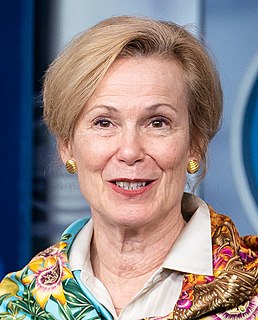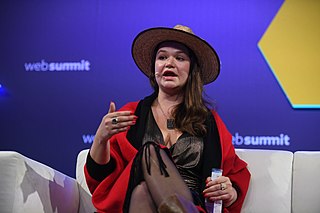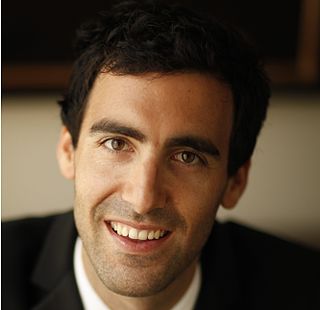A Quote by Clayton Christensen
Disruptive technology is a theory. It says this will happen and this is why; it's a statement of cause and effect. In our teaching we have so exalted the virtues of data-driven decision making that in many ways we condemn managers only to be able to take action after the data is clear and the game is over. In many ways a good theory is more accurate than data. It allows you to see into the future more clearly.
Related Quotes
By the time it becomes obvious that a technology will have truly disruptive impact, it is often too late to take action. This is one reason why we are such advocates of using theory to try to analyze industry change. Conclusive evidence that proves that a company needs to take action almost never exists. In fact, the data can fool management, lulling them into a false sense of security.
We are all trained to be data driven people, but no hard data exist about the future. Therefore, the only way to look into the future with any degree of accuracy is to use theory, statements of what causes what and why. If executives have the right theories in their heads, they can very quickly interpret market developments. They can identify what matters and why, and act accordingly. So we suggest decision-makers should start by gaining a deep understanding of the relevant collection of theories, and then be alert for signals that indicate certain types of developments.
No theory ever benefited by the application of data, Amy. Data kills theories. A theory has no better time than when it's lying there naked, pure, unsullied by facts. Let's just keep it that way for a while." "So you don't really have a theory?" "Clueless." "You lying bag of fish heads." "I can fire you, you know. Even if Clay was the one that hired you, I'm not totally superfluous to this operation yet. I'm kind of in charge. I can fire you. Then how will you live?" "I'm not getting paid." "See, right there. Perfectly good concept ruined by the application of fact.
In my view, our approach to global warming exemplifies everything that is wrong with our approach to the environment. We are basing our decisions on speculation, not evidence. Proponents are pressing their views with more PR than scientific data. Indeed, we have allowed the whole issue to be politicized-red vs blue, Republican vs Democrat. This is in my view absurd. Data aren't political. Data are data. Politics leads you in the direction of a belief. Data, if you follow them, lead you to truth.
Scientific data are not taken for museum purposes; they are taken as a basis for doing something. If nothing is to be done with the data, then there is no use in collecting any. The ultimate purpose of taking data is to provide a basis for action or a recommendation for action. The step intermediate between the collection of data and the action is prediction.
One of the myths about the Internet of Things is that companies have all the data they need, but their real challenge is making sense of it. In reality, the cost of collecting some kinds of data remains too high, the quality of the data isn't always good enough, and it remains difficult to integrate multiple data sources.































